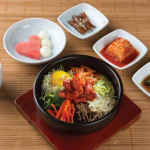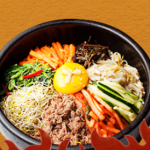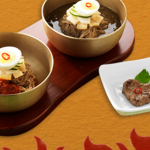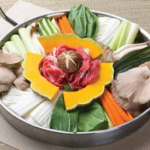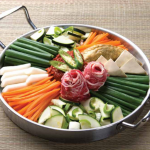Introduction
Have you ever wondered if Muslims can enjoy the delectable flavors of Korean cuisine? Well, let me tell you, the answer is a resounding yes! Muslims, just like anyone else, can savor the deliciousness of Korean dishes with a few considerations and adaptations. Today, we’re going to explore the world of Korean food and see how it aligns with the dietary requirements of our Muslim friends.
The Melting Pot of Flavors 🍛
Korean cuisine is renowned for its vibrant flavors, comfort food, and diverse array of ingredients. While it may seem like an uncharted territory for Muslims, let’s break down some of the key components to help you navigate through the culinary adventure.
1. Ingredients, Ingredients, Ingredients! 🌿
The beauty of Korean cuisine lies in its vast range of vegetables, seafood, and meats. As a Muslim, the first thing to consider is whether the ingredients are halal or not. Fear not, as most of the basic components such as rice, tofu, vegetables, and certain types of seafood are all permissible for Muslims to consume. When dining out, be sure to inquire about the source of meat and any prepared dishes that may contain non-halal ingredients such as alcohol or pork.
2. Oh, the Soup-er Soups! 🍲
One cannot mention Korean cuisine without bringing up their soul-warming soups, like the famous kimchi jjigae! It’s good news for Muslim foodies, as most traditional Korean soups are halal-friendly. These soups are predominantly made with vegetables, tofu, and seafood, which are all permissible to consume. Just remember to check for any non-halal ingredients that may be added, such as fish sauce or fermented shrimp paste (saewujeot).
3. Tantalizing Tteok-bokki and More! 🌶️
Imagine sinking your teeth into the spicy, chewy goodness of tteok-bokki, a popular Korean street food made with rice cakes drenched in a fiery sauce. Muslims can dig into this delightful dish without any worries as it usually contains halal ingredients. However, keep an eye out for varieties that may include non-halal elements such as fish cakes or oyster sauce. Simply request for those to be excluded or find halal-certified options for an authentic and worry-free experience.
Conclusion
Who would have thought that Muslims could dive into the wonders of Korean cuisine with such ease? From its diverse range of ingredients to soul-soothing soups and spicy delicacies, there’s a little something for everyone. While being mindful of non-halal elements, Muslims can successfully navigate the world of Korean cuisine and enjoy the mouthwatering flavors it has to offer.
So the next time you’re in search of a halal food adventure, don’t hesitate to explore the melting pot of flavors that Korean dishes bring to the table. Kampung meets kimchi, anyone?
Frequently Asked Questions (FAQ)
- Is Korean food generally halal-friendly?
-
Yes, Koren food is generally halal-friendly. Many dishes incorporate permissible ingredients such as rice, vegetables, tofu, and certain seafood.
-
Can Muslims consume Korean BBQ?
-
Korean BBQ can be enjoyed by Muslims if the meat used is halal-certified. It’s important to verify the source of the meat before indulging.
-
Are there any non-halal ingredients commonly used in Korean cuisine?
-
Some non-halal ingredients may be present in Korean cuisine, such as alcohol, pork, fish sauce, or shrimp paste. It’s essential to be cautious and ask about these ingredients when dining out.
-
How can I identify halal Korean restaurants?
-
Look for halal certifications or labels provided by recognized Islamic authorities. Muslim communities often have online platforms or apps that recommend halal restaurants, so keep an eye out for those as well.
-
Can Muslims eat traditionally fermented dishes like kimchi?
- Yes, Muslims can enjoy traditionally fermented dishes like kimchi. The fermentation process typically removes any non-halal elements, making it permissible to consume.

